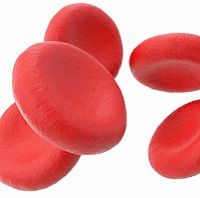Article
Antithrombotics Have Varied Risk of Causing Major Bleeds
Author(s):
There are many anti-thrombotics available. An industry study showed apixaban had the best record of dissolving clots without causing major bleedign.

Clot-busting drugs work, but they sometimes cause dangerous major bleeding. Reporting at the American Heart Association 2015 Scientific Sessions in Orlando, FL, a team of drug company researchers offered results of a retrospective cohort study showing that apixaban (Eliquis/Bristol-Myers-Squibb/Pfizer) had a lower risk of bleeding.
Shital Kamble of Bristol-Myers Squibb and colleagues there and at Pfizer and Gregory Lip of the University of Birmingham, Birmingham, UK, looked at commercial and Medicare data to see what therapies patients who experienced major bleeding had been on before they were hospitalized.
Among 26,604 patients with non-valvular atrial fibrillation (NVAF), only patients who were imitated on apixaban 5mg BID were associated with significantly lower risk of major bleeding, the team reported.
The unadjusted incidence rate of bleeding was 2.17 per 100 person years for patients taking apixaban. For those taking dabigatran it was 2.98; for those getting rivaroxaban, it was 3.99 and for those on dose-adjusted warfarin it was 4.66.
Hazard ratio analysis was done adjusting for age, sex, baseline comorbidities and co-medications.
Compared to warfarin patients, those on apixaban had about half the risk (HR=0.53) of a major bleed. The research is presented in an abstract.
The findings are contrary to data presented on the safety of rivaroxaban in 39,052 people with NVAF showed the rates and patterns of major bleeding in routine clinical practice were 2.89 per 100 person-years.





